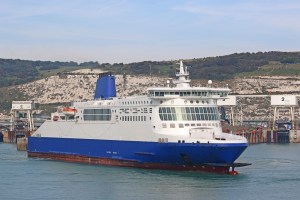Written by Marketa Pape,

After a review of the EU legislation on passenger ship safety, the European Commission proposed a number of changes to simplify the existing rules and cut administrative costs, while making sea travel safer. This proposed directive clarifies technical requirements for construction, stability and fire protection of vessels travelling on domestic routes. The newly defined standards should provide for uniform national interpretations and make the rules easier to update, monitor and enforce.
Background
With about 400 million passengers embarking or disembarking in EU ports annually, passenger ships contribute significantly to mobility. The existing regulatory framework has ensured a high level of passenger safety, with accident statistics ranking EU waters among the safest in the world. However, Directive 2009/45/EC, which incorporated international standards into EU law, included several ambiguous provisions, which national authorities interpreted in different ways; in particular with respect to the types of ship covered by its rules.
European Commission proposal
The proposal aligns references and definitions with other existing EU legislation. As to the scope, the directive would apply to ships made of steel or equivalent material, thus covering most modern passenger ships. However, the Commission proposed to leave smaller ships (below 24 metres) to be regulated at national level, as these are more sensitive to local conditions. The directive would also now cover ships made of aluminium, which implies significant retrofitting costs for about 100 vessels, to comply with fire safety standards. The proposal would also simplify the definition of sea areas in which ships can operate. Two issues in particular raised discussion, the exclusion of smaller ships and the fire safety requirements for aluminium ships.
European Parliament position
The Committee on Transport and Tourism (TRAN) adopted its report on 11 April 2017, largely supporting the proposal. While agreeing with the exclusion of ships of under 24 metres, it asked the Commission to provide guidelines to ensure their safety. It also supported the inclusion of vessels made of aluminium, but suggested a longer transition period for their adaptation. Furthermore, it insisted that the EU should be proactive in monitoring and improving social conditions of workers on board, as these can impact on vessel safety.
Outcome of the trilogue negotiations
Negotiations between the Council and Parliament concluded on 15 June 2017. They agreed that ships below 24 metres (as well as sailing ships and ships not propelled by mechanical means, tenders and offshore service ships) would remain outside the scope of the directive. Member States with no seaports and no ships flying their flag can derogate from the directive, while Greece can derogate from the rule on establishing sea areas. Member States with more than 60 passenger ships made from aluminium can also derogate – for 10 years for ships built before the directive enters into force and for 12 years for new ships, provided that they operate only between ports of that Member State. The Commission’s power to adopt delegated acts has been limited to seven years. Member States will have two years to introduce the new rules into national legislation. On 11 July, the TRAN Committee endorsed the text, which is now due for a vote during the October I plenary session.
First-reading report: 2016/0170(COD); Committee responsible: TRAN; Rapporteur: Daniela Aiuto (EFDD, Italy). For further information, see our ‘EU Legislation in progress’ briefing.
Read this Plenary At a Glance note on ‘Safety rules and standards for passenger ships‘ in PDF on the Think Tank pages of the European Parliament.
Listen to podcast ‘Safety rules and standards for passenger ships‘

![Safety rules and standards for passenger ships [Plenary Podcast]](https://i0.wp.com/epthinktank.eu/wp-content/uploads/2017/09/eprs-aag-608709-safety-rules-standards-passenger-ships-final.jpg?fit=1000%2C666&ssl=1)





